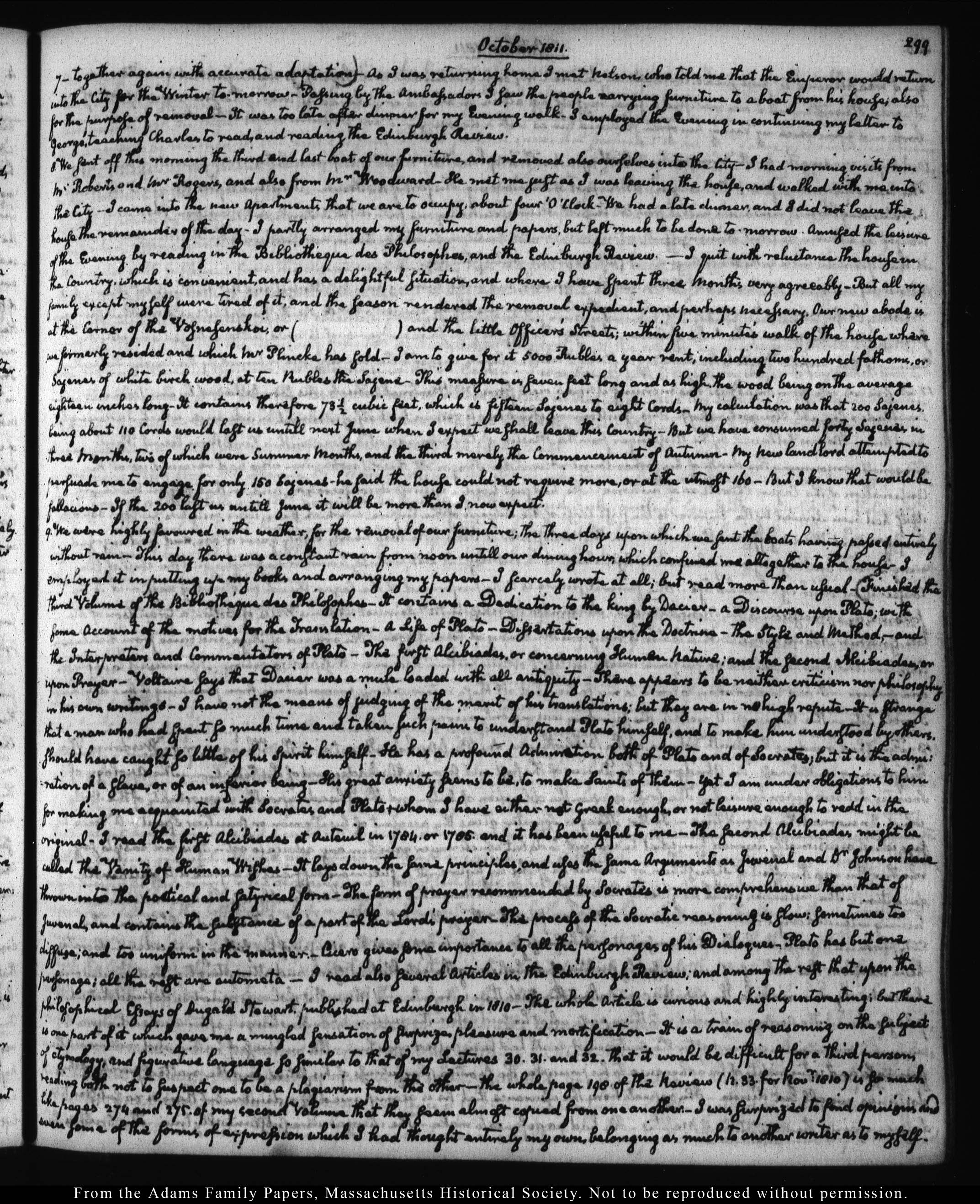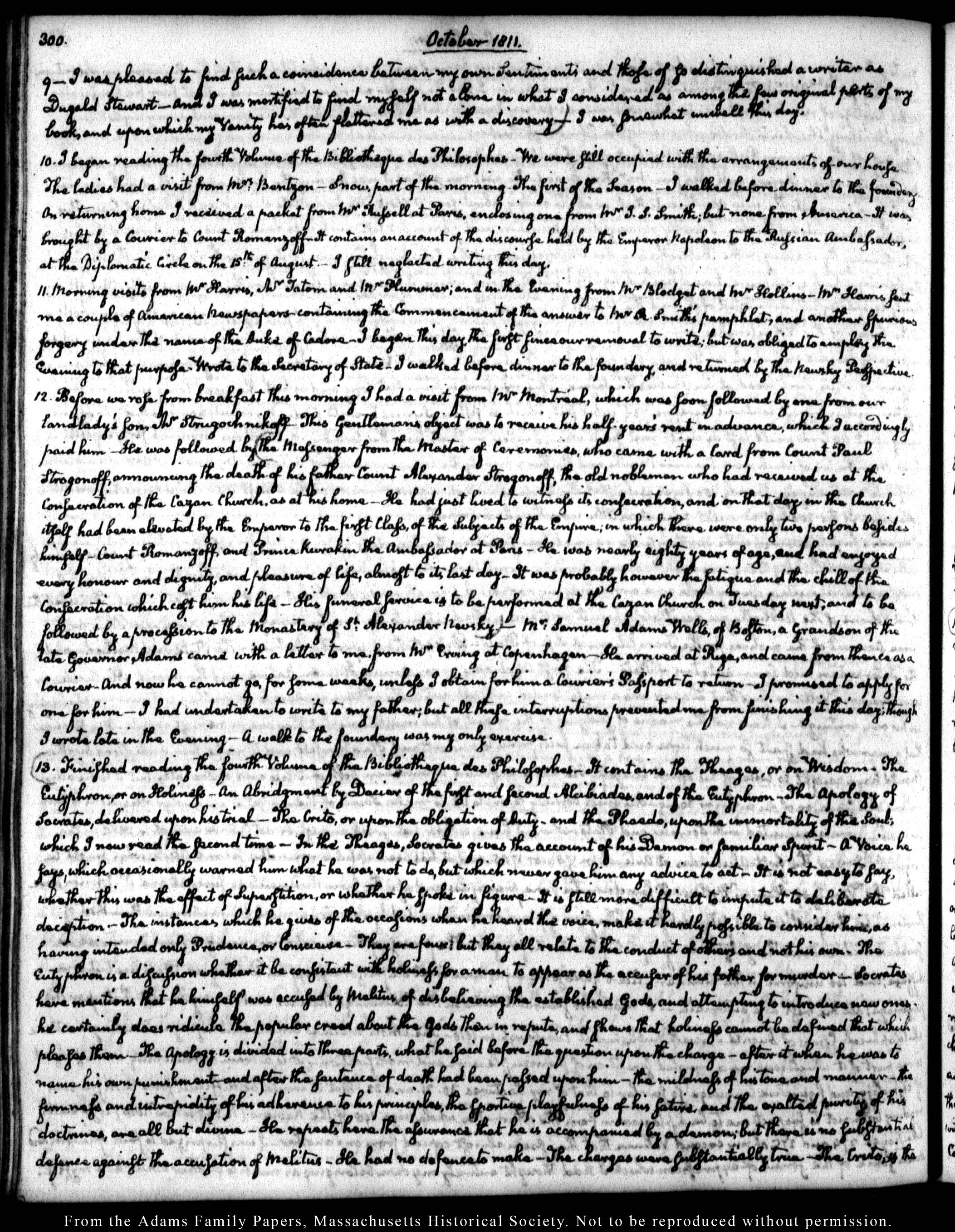Later Diplomatic Career
August 1809 - August 1817

page 299

page 300
r
Johnson have thrown into the poetical and satyrical form—
The form of prayer recommended by Socrates is more comprehensive than
that of Juvenal, and contains the substance of a part of the Lord’s
prayer— The process of the Socratic reasoning is slow; sometimes too
diffuse; and too uniform in the manner.— Cicero gives some importance to all the personages of his
Dialogues— Plato has but one personage; all the rest are automata— I
read also several Articles in the Edinburgh Review; and among the rest
that upon the philosophical Essays of Dugald Stewart, published at Edinburgh in 1810— The whole
Article is curious and highly interesting; but there is one part of it
which gave me a mingled sensation of surprize, pleasure and
mortification— It is a train of reasoning on the subject of etymology,
and figurative language so similar to that of my Lectures 30. 31. and
32. that it would be difficult for a third person, reading both not to
suspect one to be a plagiarism from the other—the whole page 198 of the
Review (N. 33. for Novr: 1810) is so much
like pages 274 and 275. of my second Volume that they seem almost copied
from one another.— I was surprized to find opinions and even some of the
forms of expression which I had thought entirely my own, belonging as
much to another writer as to myself. 300I was
pleased to find such a coincidence between my own Sentiments and those
of so distinguished a writer as Dugald Stewart— And I was mortified to
find myself not alone in what I considered as among the few original
parts of my book, and upon which my Vanity has often flattered me as
with a discovery— I was somewhat unwell this day.
